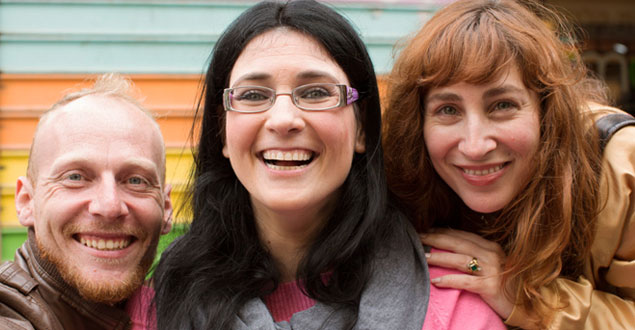 Rob: When you’re in your own home, it’s fine, but when you’re away from home it’s a lot different because you have to accept new surroundings and different situations, such as an aeroplane, or a train, or a hotel, or a department store, or wherever you can find that you’re comfortable to be able to do the catheterisation. You have to be confident enough to do it at your own speed and find the right place, and then you can make it work very well.
Rob: When you’re in your own home, it’s fine, but when you’re away from home it’s a lot different because you have to accept new surroundings and different situations, such as an aeroplane, or a train, or a hotel, or a department store, or wherever you can find that you’re comfortable to be able to do the catheterisation. You have to be confident enough to do it at your own speed and find the right place, and then you can make it work very well.
Nurturing friendships and being social can be overwhelming and challenging when you are dealing with bladder problems, especially when having to leave your home.
It is natural to feel insecure when leaving the house for many hours. Our intimate details and what we do when we visit the bathroom is usually nobody’s business. When you go out and participate in activities where you have less control over the situation and where it can be difficult to find the required privacy, your feeling of security may be challenged. You might feel alone with your struggles, because most people don’t know about your issue or because you might not want them to know - or coincidently discover it.
Remember, that when you use intermittent catheters you can plan your day, ensuring that your bladder is emptied, when you want it, instead of at inconvenient times. With some practice it can be done in a few minutes and you won’t be away for any longer than anyone else going for a bathroom break. This means that often most people would not need to know anything about it, if you don’t want them to. But it might be easier if – at least some – people knew. When you have to use a catheter it is easier to relax, when you can be yourself and do what you have to do without making up excuses.

What if I’m at a friend’s house?
If you are at a friend’s house you might worry about privacy when using the bathroom. When you need to get rid of the used catheter, it is helpful to have some opaque plastic bags with you to wrap the catheter in after use so you can discard it or take it home with you. You can also get catheters that are compact and discrete, so you can just have them in your pocket – even when they have been used.
Do I need to tell anyone?
There is no general answer to that. We all have individual barriers when it comes to sharing intimate details. However, it might be a good idea to tell at least one person in case there is an emergency. Read our thoughts on talking about it in the article ‘Should I tell anyone about it?’